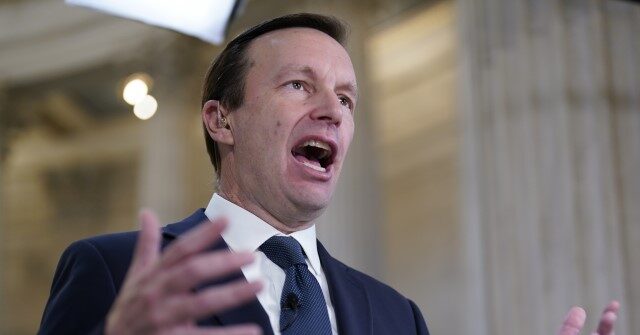In recent discussions surrounding the Israeli-Palestinian conflict, Senator Chris Murphy (D-CT) expressed concerns that Israeli Prime Minister Benjamin Netanyahu might be strategically prolonging military actions against Iran and its allied groups to influence the upcoming U.S. presidential election. During a CNN interview with Erin Burnett, Murphy articulated his fear that Netanyahu is not prioritizing a diplomatic resolution with Hamas and is instead exacerbating tensions with Hezbollah. He suggested that Netanyahu could be observing the political landscape in the U.S. and making military decisions that might affect electoral outcomes, particularly with the Democratic Party currently divided on the issue of Gaza.
Murphy’s apprehensions are underscored by the broader implications of ongoing military conflicts. By refusing to engage in peace negotiations, Netanyahu might be creating an unstable environment that leads to further military escalation. Murphy emphasized the possibility that Israel’s government might not pursue any diplomatic engagements before the American elections, which could be interpreted as an attempt to sway American public opinion and political outcomes. This sentiment reflects distrust in Netanyahu’s motives and raises concerns about the manipulation of foreign policy for domestic electoral gains.
The timing and tactics of Israel’s military engagement came into sharper focus when a White House reporter raised the question of whether Netanyahu’s actions were intended to affect the U.S. election. President Biden, in his response, highlighted the strong support his administration has provided to Israel, asserting that no U.S. administration has been as supportive. He refrained from confirming whether he believed Netanyahu was indeed attempting to influence the election but noted that he was not depending on it. This interaction underscores the complexities around U.S.-Israel relations and how they intersect with American domestic politics.
The military backdrop to these political conversations is equally significant. Israel recently faced a barrage of nearly 200 ballistic missiles from Iranian forces, indicating a rising threat from Iran-backed entities in the region. Reports indicated that Israeli soldiers were discovering significant caches of weapons in Lebanon, poised for use in large-scale attacks reminiscent of the October 7 assault. Such military developments not only threaten Israeli security but also shape the narrative within U.S. political discourse, particularly as these tensions escalate and provoke discussions on foreign policy among American voters.
The intersection of Middle Eastern conflict and U.S. electoral politics prompts a broader contemplation about the influence of foreign governments on domestic affairs. These events raise questions about accountability and transparency in how international conflicts are navigated by elected leaders. For politicians like Murphy, it crystallizes the need for a dialogue that balances national interests with moral imperatives surrounding peace and diplomacy. As the political landscape evolves, the potential for foreign influence remains a contentious issue that could sway public opinion and electoral outcomes.
In conclusion, the current climate surrounding U.S.-Israel relations underlines the complexities of navigating foreign conflicts alongside domestic political considerations. Concerns raised by figures like Senator Murphy highlight the uneasy dance between military actions abroad and their potential repercussions at home, particularly in relation to electoral decisions. As the situation continues to unfold, the test for both American politicians and Israeli leaders will lie in their ability to engage with these issues without compromising diplomatic integrity or the broader quest for peace in the region.

